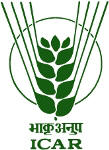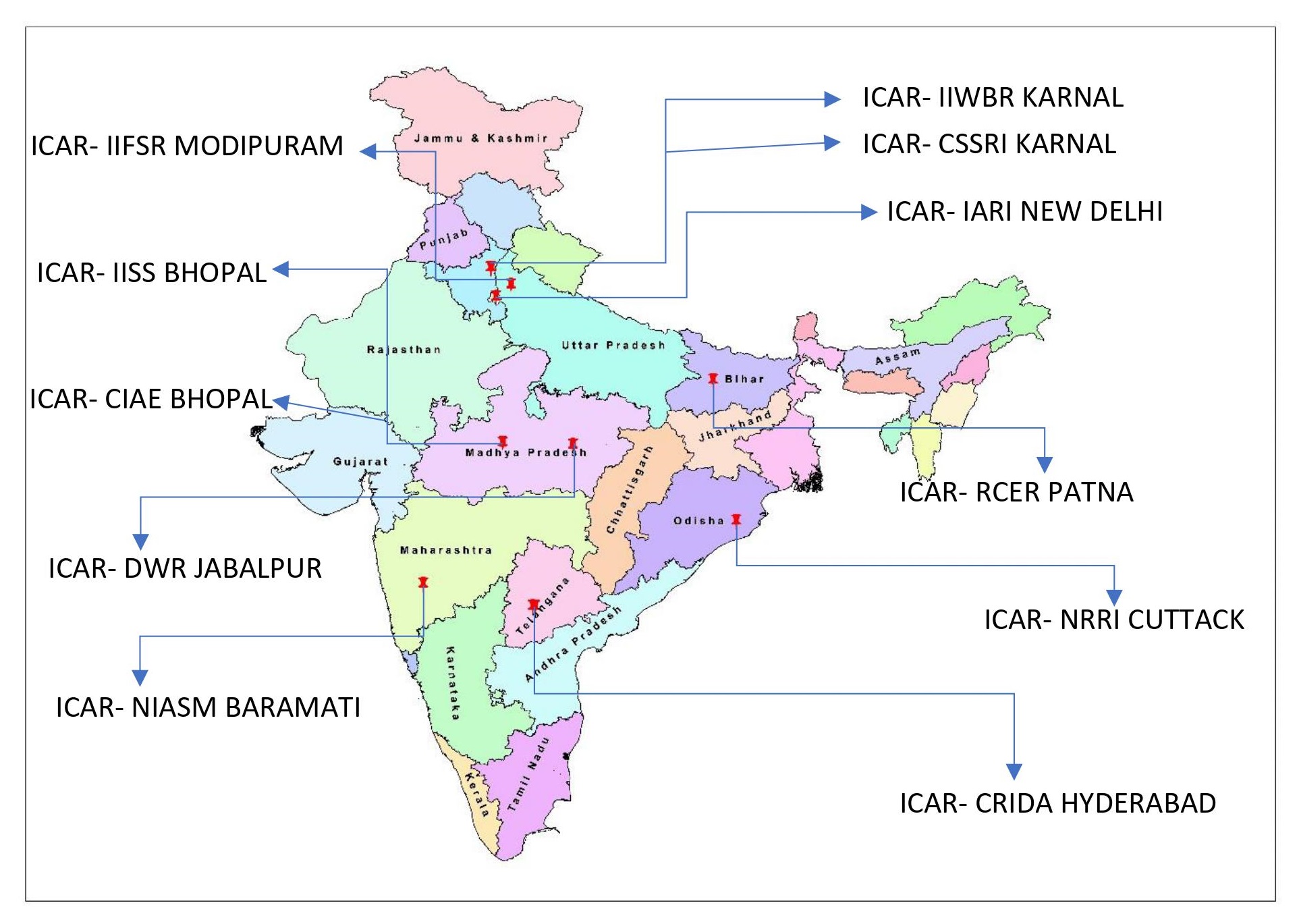

CRP on Conservation Agriculture
ICAR-Indian Institute of Soil Science
Consortia Research Platform on Conservation Agriculture
The Context :
Agriculture remains central to the Indian economy, providing livelihood to the majority of its population. Though Indian agriculture have made spectacular progress for food self-sufficiency, yet growing challenges of large management yield gaps, low water and nutrient efficiency, imbalance and inadequate use of external production inputs, diminishing farm profits, deterioration of soil health and environmental quality coupled with climate risks are major concerns. Feeding a growing population with increasing dietary preferences for resource-intensive food products is a major challenge. Moreover, with no scope for horizontal expansion of farming to produce needed food; improving agronomic productivity and achieving high and stable yields under changing and uncertain climate are important for feeding the growing population. Increasing climatic variability affects most of the biological, physical and chemical processes that drive productivity of agricultural systems. The productivity and stability of agricultural systems depend upon measurable factors and processes controlled by climate and non-climate drivers of production paradigm. It is therefore vitally important to develop strategies and practices to sustainably increase food production while increasing farm income, protecting natural resources and minimizing environmental footprints.
In most part of India, the agronomic yield of food staples can still be increased substantially through bridging management yield gaps. The widespread adoption of conservation agriculture (CA) based sustainable intensification (SI) can contribute to this significantly specially in rainfed and fragile ecologies, yet conserving and protecting natural resources. Conservation agriculture based management technologies has proved to produce more with less (costs, water, energy, labour etc), reduce environmental pollution, promote conjunctive use of organics (avoid residue burning), improve soil health and help adapting to climatic risks. Like any other tillage and crop establishment technology, it may not be a panacea for all present day ills, but has proven to bring out South American Agriculture out of its stagnant state almost 35 years ago, skyrocketing the cereals and oilseed production system. Thus, for addressing the issues of resource fatigue and bridging ‘management yield gaps’, Conservation Agriculture based sustainable intensification is cornerstone.
Over past two decades, efforts have been made on research for developing, adapting and scaling conservation agriculture based sustainable intensification under various programs, schemes and initiatives by ICAR, State Agriculture Universities (SAUs), CIMMYT and other CGIAR centers, developmental departments, NGOs, private sector and farmers organizations. There are some good success stories around CA based technologies. However, the potential impact has yet to be achieved. CA being knowledge intensive with site/location/situation specificity in application of component technologies (variety, machine, water, nutrient, weed, pest, etc.) on basis of elements of CA (minimum mechanical disturbance of soil, rational organic soil cover and efficient crop rotation), needs precise understanding on recommendation domain for its large scale adoption.
Mission :
Mainstreaming conservation agriculture for sustainable use and management of natural resources to improve productivity and ensuring food security.
Objectives :
![]() Develop and validate location specific CA technologies for sustainable intensification of cropping systems across agro-ecologies.
Develop and validate location specific CA technologies for sustainable intensification of cropping systems across agro-ecologies.
![]() Quantify impact of CA on soil health, pest dynamics, input use efficiency, carbon sequestration and greenhouse gas emissions.
Quantify impact of CA on soil health, pest dynamics, input use efficiency, carbon sequestration and greenhouse gas emissions.
![]() Capacity building, knowledge management, institutional arrangement and enabling policies for accelerated adoption of Conservation Agriculture.
Capacity building, knowledge management, institutional arrangement and enabling policies for accelerated adoption of Conservation Agriculture.
![]() Adapt and mainstream available best bet location specific CA practices for enhanced productivity and profitability in rainfed and irrigated eco-systems.
Adapt and mainstream available best bet location specific CA practices for enhanced productivity and profitability in rainfed and irrigated eco-systems.
Multi Pronged Approach :
1. Basic & Strategic Research: To carry out long-term research on evolving CA packages and development of suitable machinery for irrigated and rainfed cropping systems by understanding and overcoming operational constraints at farm level .![]() Generate need based component technologies for different production systems .
Generate need based component technologies for different production systems .
![]() Validation and refinement of component technologies .
Validation and refinement of component technologies .
![]() Fine-tuning the existing and new CA machinery .
Fine-tuning the existing and new CA machinery .
![]() Screen and identify suitable varieties.
Screen and identify suitable varieties.
![]() Quantify tangible and non-tangible benefits.
Quantify tangible and non-tangible benefits.
2. Adaptive Research: To organize on-station and on-farm adaptive trials on CA and front-line demonstrations in irrigated and rainfed cropping systems.
![]() Synthesis and documentation of the CA based best management practises (BMPs).
Synthesis and documentation of the CA based best management practises (BMPs).
![]() Participatory adaptation and out-scaling of CA based BMPs.
Participatory adaptation and out-scaling of CA based BMPs.
3. Capacity Building: Capacity building, knowledge management and enabling policies for accelerated adoption of Conservation Agriculture .
Major Cropping Systems :
Rainfed: Rice-fallow(12mha),Soybean Wheat* /Soybean-Chickpea(2.23mha), Pearlmillet/ Sorghum/clusterbean-wheat/mustard/chickpea(5.7mha), etc .Irrigated: Rice-Wheat (10 mha), Rice-Rice/Greengram (5.9 mha), Maize-wheat/ chickpea (2 mha), Wheat-Sugarcane (0.97mha).
CRP ON CA CENTRES LOCATION IN INDIA
